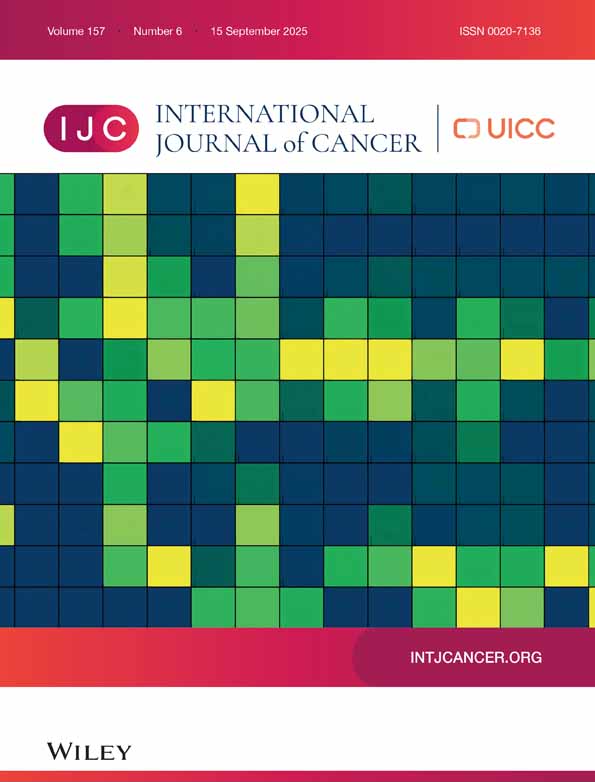Tissue factor expression correlates with disease-specific survival in patients with node-negative muscle-invasive bladder cancer
Abstract
Tissue factor (TF), a transmembrane glycoprotein responsible for initiating the extrinsic pathway of blood coagulation plays a key role in cancer growth, metastasis and angiogenesis. Various studies have demonstrated the prognostic potential of TF expression in several cancers. However, its role in bladder cancer is unclear. This study evaluated the prognostic potential of TF expression in muscle-invasive bladder tumors from patients treated with radical cystectomies. Immunohistochemical staining using a monoclonal antibody (mAb) anti-TF was carried out on sections of tissue microarray blocks containing cores of muscle-invasive bladder tumors (4 cores/tumor) from 218 patients. The intensity of the staining was evaluated on a scale from 0 to 3 by two independent observers who were both unaware of the clinicopathological characteristics of the samples. TF was expressed in 77.6% of tumors, independently from baseline characteristics (age, gender, stage and grade) as assessed using the χ2 and Student t tests. During follow-up (median: 2.6 years), 45.4% of the patients died from the progression of their cancer. Kaplan–Meier survival showed that among the 103 patients with node-negative (N0) transitional cell carcinoma (TCC), those with TF-positive tumors had shorter bladder cancer-specific survival (p = 0.0276). Moreover, multivariate Cox regression analysis showed they had a 3.15-fold greater risk of dying from bladder cancer (95% CI: 1.1–9.0; p = 0.032). In conclusion, TF expression was an independent predictor of disease-specific survival in N0 muscle-invasive TCCs treated by radical cystectomy and therefore, might help identify patients at higher risk of disease progression. These patients could potentially benefit from adjuvant chemotherapy. © 2007 Wiley-Liss, Inc.




